The recording of my recent talk at the MILAN exercises of the Indian Navy is now available on Youtube. In the presentation I revisit the shifts in global ocean politics that navies will have to address in their strategy, and show how critical maritime infrastructure protection is an important point of strategic convergence and global naval cooperation.
Category Archives: In the field
Navies and the blue economy: Strategic thinking at Indian Ocean Naval Symposium
In December 2023 I had the pleasure to participate in the 8th Indian Ocean Naval Symposium organized by the Thai Navy.
The Indian Ocean Naval Symposium (IONS) is one of the most important maritime security arrangement in the region. It is the only format that brings security actors from south east Asia, the bay of Bengal and the western Indian Ocean together to discuss security at sea. It also includes important maritime states, including China, Germany, Italy, Japan and Russia as observers.
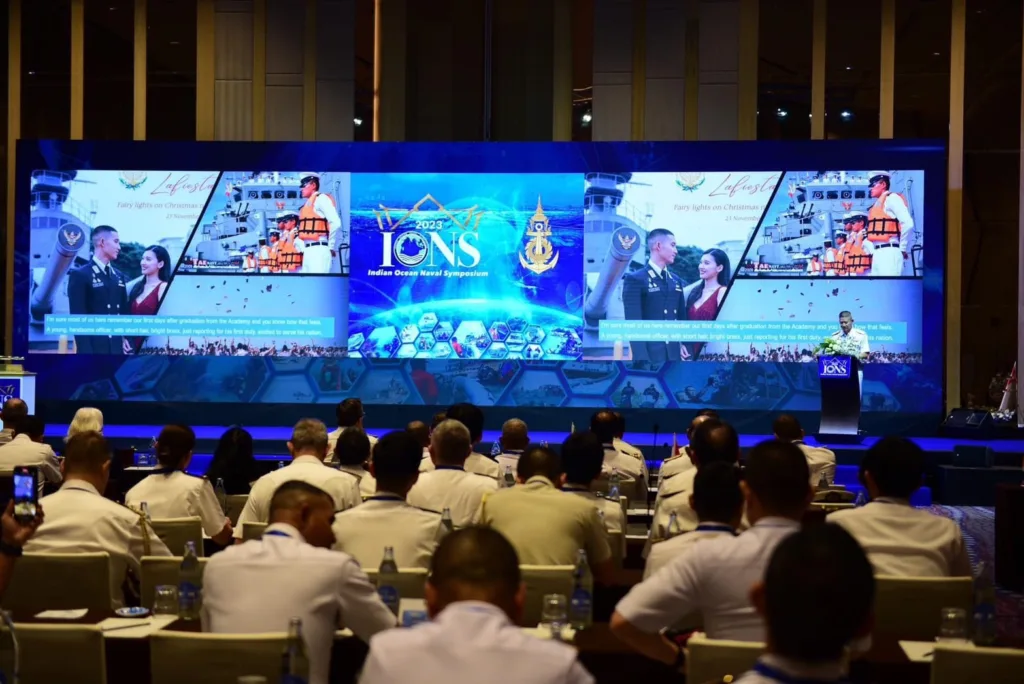
Seabed security: Naval Forum in Spain
The seabed is rapidly becoming a new space of concern in security politics. In Europe, largely triggered by the 2022 sabotage of he Nord Stream pipelines, but also investments by Russia in subsea capabilities, NATO countries are reevaluating their dependency on subsea infrastructures such as pipelines and data and electricity cables.
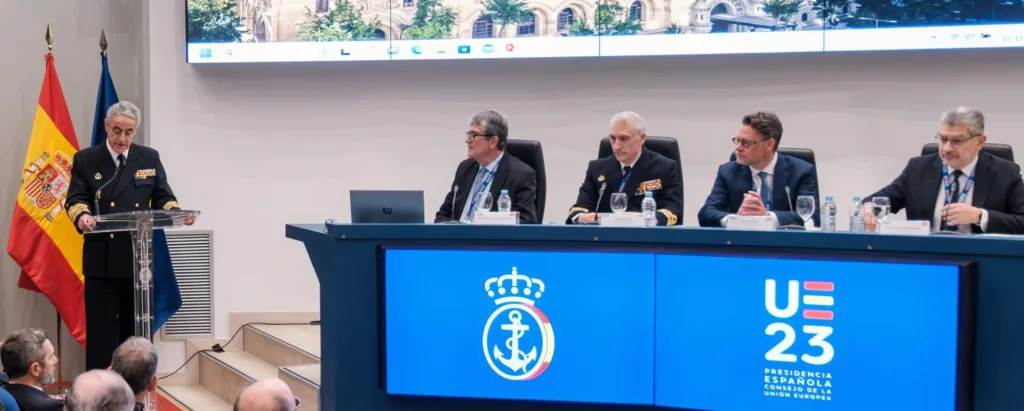
As part of their EU presidency, the Spanish Navy hosted a Forum focused on the issue on November, 16th at naval headquarters in Madrid. Titled the “Seabed, a new area of interest and dispute”, 150 participants, including high level representatives from all major European navies, discussed the importance of the seabed, and different responses.
The first panel focused on the strategic picture, deep seabed mining and subsea data cables. In the second panels, the navies of Spain, Italy and France provided an overview of the defense and coordination projects they are currently developing. The French representative showed how the navy is implementing its dedicated seabed strategy, while Italy discussed how their response is structured by technological innovation, maritime stakeholder communities, a legal review and the creation of a new coordination center.
In my contribution to panel 1, I firstly argued for the need to think maritime security in dimensional terms. I then demonstrated how substantively our dependency on the seabed has been accelerating in the past two decades, a trend that will continue with the green energy transition is unfolding. Two make that point, I provided a review of how the seabed has been used throughout history. I then investigated the hypothetical landscape of threats based on our recent article on the issue. I ended in an evaluation of current European responses and its challenges.
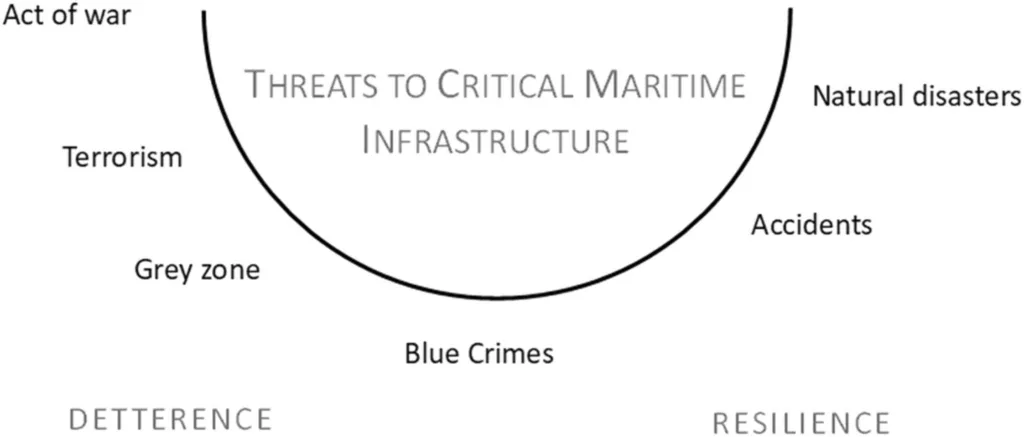
The main responses are led by NATO and the EU. NATO has developed a coordination cell in its headquarters which organizes a stakeholder network described as ‘community of trust’. At NATO Maritime Command a center for critical infrastructure protection is being developed which will operate in a similar way as the NATO Shipping Center to enhance information sharing and coordination with industry.
The EU is currently evaluating the vulnerability of subsea infrastructures, and has recently launched its EU Maritime Security Strategy that entails significant plans for infrastructure protection. A key actor driving the agenda is the European Defense Agency.
More efforts will be needed, however, in improving maritime domain awareness and subsea awareness, reliable information sharing and standards for the self-protection by the industry.
Debating the future of maritime security in the Western Indian Ocean
What’s the state of progress and arising challenges for maritime security in the Western Indian Ocean? From 14.-16.11. I had the pleasure to follow large parts of a ministerial conference addressing this issue in Mauritius online. I chaired one session on the first day and provided comments in the concluding sessions.
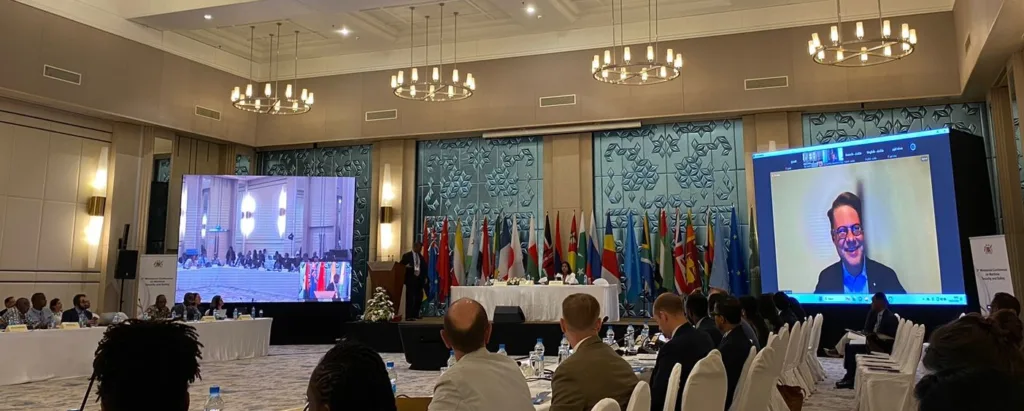
Below is the write up of my intervention:
Towards holistic maritime security: Finetuning the maritime security system in the Western Indian Ocean
Maritime security solutions in the Western Indian Ocean have made significant progress. A decade after the crisis caused by piracy attacks in the region, a sustainable and well-functioning maritime security structure has been built.
While often referred to as a maritime security ‘architecture’, this term seems no longer appropriate. An architecture is a metaphor that points to a project in planning and construction. Maritime security has progressed in the region to a degree, that it is now better to refer to a ‘system’ – a system that needs to be finetuned and improved, but which has been well established.
Continue readingDiscussions on maritime security and infrastructures in Geneva
While the global attention for the oceans continues to be unprecedented, maritime security and critical maritime infrastructure protection lack an institutional home within the United Nations system. While different UN agencies deal with aspects of the agenda, the debate is dispersed and lacks a holistic outlook. This includes the International Maritime Organization, the UN Office on Drugs and Crime, the Food and Agricultural Organization, the UN Environment Programme, the UN Office for Disaster Risk Reduction or the UN Conference on Trade and Development. Maritime security has also been high on the agenda of the UN Security Council. This risks global fragmentation and the question of the relation between regional and global ocean governance continues to be unsettled.
On November 9th I had the pleasure to discuss with UN bodies in Geneva how this situation can be addressed.
Writing retreat and field work in Mauritius
Over the last ten days I was with the team of the Ocean Infrastructure Research Group in Mauritius. Together we advanced the draft of our forthcoming book on ocean infrastructure and conducted field work on the 2020 Wakashio oil spill, which is one of our case studies.
In the book we develop a new understanding of global ocean politics by developing a framework centered on infrastructure. We argue that the concept of infrastructure opens productive new avenues for understanding global ocean politics that allows us to overcome the limits of thinking centered on territory, freedom or global commons. We show the evolution of the oceans as an infrastructural space, and show how we can rethink power, law, security and knowledge infrastructurally.
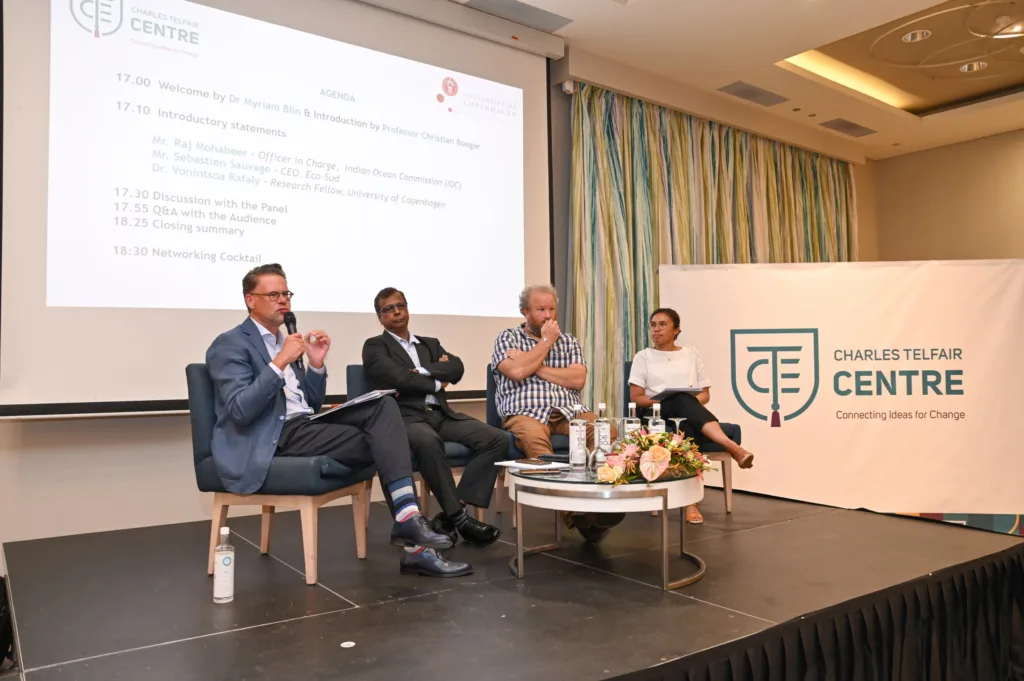
Fieldwork on shipping risks in small islands
Part of our stay in Mauritius was also a stakeholder workshop and a public event on shipping risks and the lessons from the 2020 Wakashio shipping accident which caused a major environmental disaster in the country. The event was covered in the national newspapers, and we also met with a range of stakeholders individually, including the minister on blue economy, fishing and shipping.
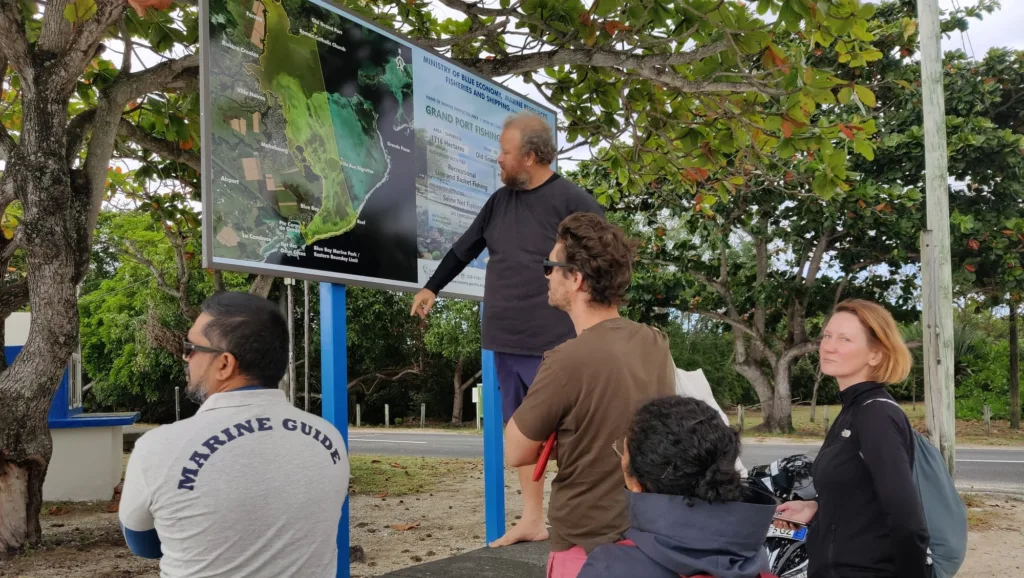
A particular important experience was a field visit to the site where the accident happened and the coastal region where the oil was spilled. The visit was organized by the local NGO EcoSud. It revealed that the clean up is completed, but that the disaster has some visible and lasting impact on the coastal eco-system, and there continues to be residues of oil in the mangrove forests. In other words, the disaster is not over, but will have to be managed carefully in the years to come.
Visit to Bangkok and Singapore
Over the next two weeks I will be giving a range of talks in Thailand and Singapore. On the 12th I am attending the Southeast Asia Maritime Law Enforcement Initiative (SEAMLEI), 9th Annual Commanders’ Forum and give a talk on the consequences of climate change for maritime security planning and operations.
On the 13th I will be speaking at an event on Critical Maritime Infrastructure Protection in Southeast Asia organized by the National University of Singapore’s Center of International Law. I will focus in particular on the consequences of green energy expansion for Singapore and the South China Sea.
From the 16th I am attending the Regional Maritime Security Practitioner Programme (RMPP) of the Singapore Navy. The Programme is one of the capstone events of the Information Fusion Center in Singapore and brings together over 100 participants from across the world. It is one of the world’s largest gatherings of maritime security practitioners and maritime domain awareness specialists. At the event, I will be giving a presentation on current trends in maritime security drawing on our book forthcoming with Oxford University Press (with Tim Edmunds) and chair a panel on current threats in the region.
Consultative security forum in Ireland
Ireland is an island, and its security is dependent on the sea. On June 22nd I had the opportunity to contribute to the countries ongoing Consultative Forum on International Security Policy. The goal of the forum is to inform the public debate about the future options of the countries security policy and its tradition of neutrality.
In my contribution, some of which is summarized in this article, I stressed that Ireland is in a new era because it’s dependency on maritime infrastructure is increasing, and the Nord Stream attacks demonstrates that it is vulnerable. I emphasized the importance of close cooperation in the region within the EU and in mini-lateral formats.
European Council away day on maritime security
As part of the presidency of the European Council, Sweden is inviting the members of the Council working group on maritime security for an away day. The program focuses on the future of maritime security, the Baltic Sea, as well as a range of social, cultural and military-related visits and activities. The event takes place in Karlskrona, the main Swedish naval base in the Baltic, and a city with a long maritime heritage, 13-15.7.2023.
Participating in the event, I am giving a talk on critical maritime infrastructure protection in Europe with a focus on the North Sea, as well as participating in a roundtable on the future of maritime security in the EU.
Some observations from the Singapore maritime security conference
Over the last couple of days, I had the pleasure to attend the International Maritime Security Conference (IMSC) organized by the Singapore navy.
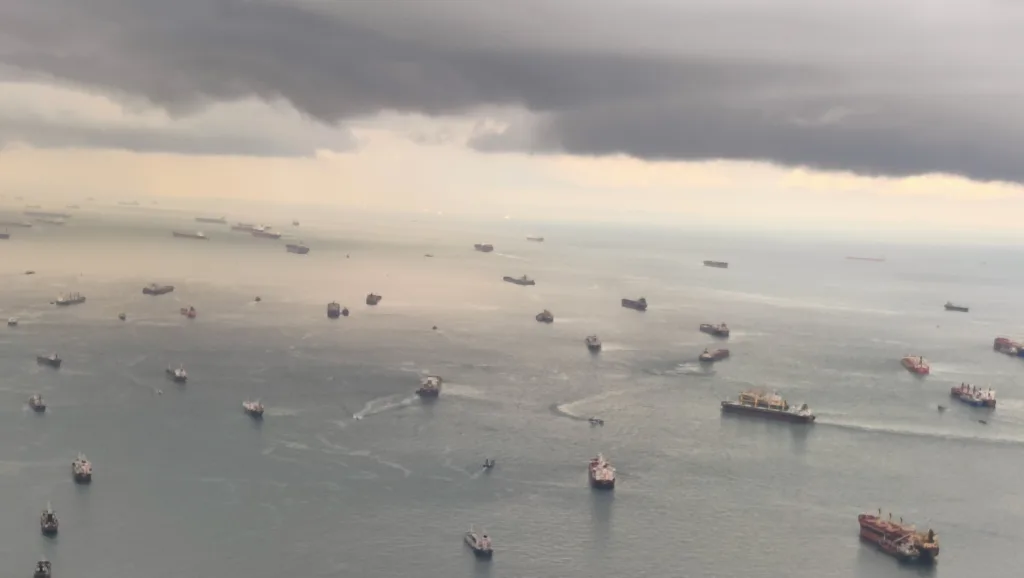
The conference is a bi-annual heads of navy meeting accompanied by a defense exhibition (Imdex), a fleet show, as well as side events organized by the maritime security program by RSIS. The conference might not have an iconic name, but is the most important gathering of navies and maritime security experts in the region. It was my second time attending.
Here are 5 observations from the event:
Continue reading